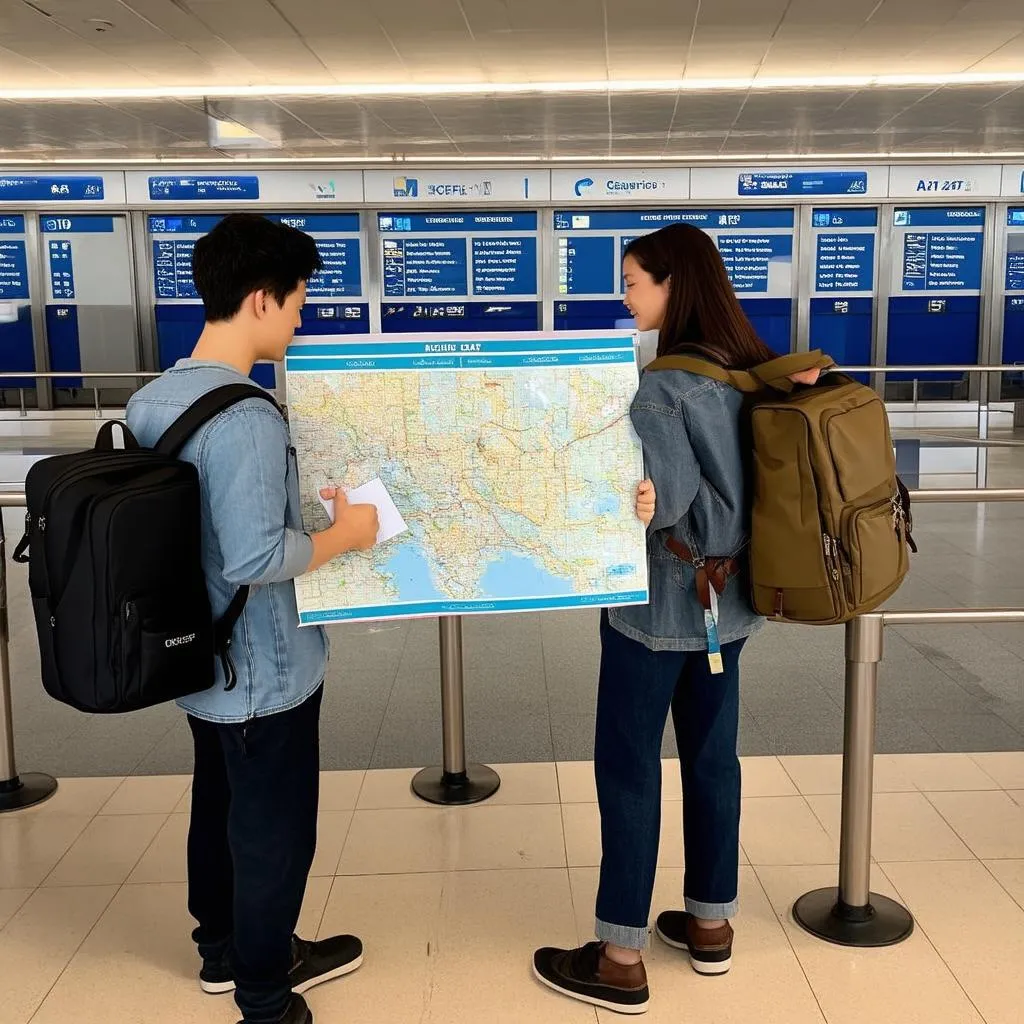Have you ever dreamt of wandering through the bustling markets of Marrakech, haggling for spices in fluent Arabic? Or perhaps sipping espresso with a charming Italian barista, discussing the latest football match? While learning an entire language for a single trip might be ambitious, mastering the basics of travel English can significantly enhance your travel experience.
Imagine this: You’re at a cozy Parisian cafe, craving a croissant and a strong cup of coffee. With a few simple phrases, you confidently order your breakfast, feeling a sense of accomplishment wash over you. This, my friends, is the power of communication!
Why is English Important for Travel?
English, often dubbed the universal language, acts as a bridge between cultures. While many locals appreciate attempts to speak their language, English often serves as a common ground:
- Ease of Communication: In numerous countries, English is widely spoken, particularly in tourist areas. This makes it easier to ask for directions, order food, or seek assistance.
- Access to Information: From airport signs to museum guides, essential travel information is often available in English.
- Connecting with Fellow Travelers: English allows you to share stories, exchange tips, and forge friendships with fellow adventurers from across the globe.
Essential English Phrases for Travelers
Greetings and Essentials
- Hello, goodbye, thank you, please: These magic words go a long way in any language!
- Excuse me: Use this to politely get someone’s attention.
- I don’t understand: Don’t be afraid to ask for clarification.
- Do you speak English? This simple question can save you a lot of confusion.
Getting Around
- Where is the…? (bathroom, train station, nearest ATM)
- How do I get to…? (the Louvre Museum, Times Square, Bondi Beach)
- Can I have a ticket to…? (Rome, Tokyo, Machu Picchu)
- How much does this cost? Bargaining is an art, but knowing the price is essential!
Dining Out
- A table for (number) people, please.
- I’d like to order the… (pointing to the menu often helps!)
- Can I have the bill, please?
Tips for Effective Communication
- Speak slowly and clearly: Enunciate your words and avoid using slang or idioms.
- Use body language: Gestures and facial expressions can be universally understood.
- Don’t be afraid to make mistakes: Locals usually appreciate the effort, even if your grammar isn’t perfect.
Language Learning Resources
- Language learning apps: Duolingo, Babbel, and Rosetta Stone offer bite-sized lessons.
- Phrasebooks: A physical phrasebook can be a lifesaver when you’re offline.
- Online dictionaries: Google Translate and WordReference are invaluable tools.
The Power of Language: A Travel Anecdote
 woman-ordering-coffee-paris
woman-ordering-coffee-paris
I once found myself in a similar situation, wandering the charming streets of Florence, Italy. My Italian was limited to “ciao” and “grazie,” but I was determined to order gelato like a local. With a combination of gestures, pointing at flavors, and a smattering of broken Italian, I successfully navigated the gelato counter. The triumphant feeling of ordering that creamy, delicious gelato made the experience even sweeter.
Travel with Confidence: Explore the World with travelcar.edu.vn
Learning basic travel English can transform your trips from good to unforgettable. It empowers you to navigate new environments, connect with locals, and create lasting memories. So, pack your bags, brush up on your English, and embark on your next adventure with confidence.
For more travel tips, destination guides, and inspiration, visit us at travelcar.edu.vn. Happy travels!
 travelers-consulting-map-airport
travelers-consulting-map-airport
Frequently Asked Questions
Q: Do I need to be fluent in English to travel?
A: Absolutely not! Basic phrases and a willingness to communicate go a long way.
Q: What if I don’t understand someone’s accent?
A: Don’t hesitate to politely ask them to repeat themselves or speak slower.
Q: Is it rude to speak English in a non-English speaking country?
A: Not at all! While it’s always respectful to learn a few basic phrases in the local language, English is often used for communication in tourist areas.